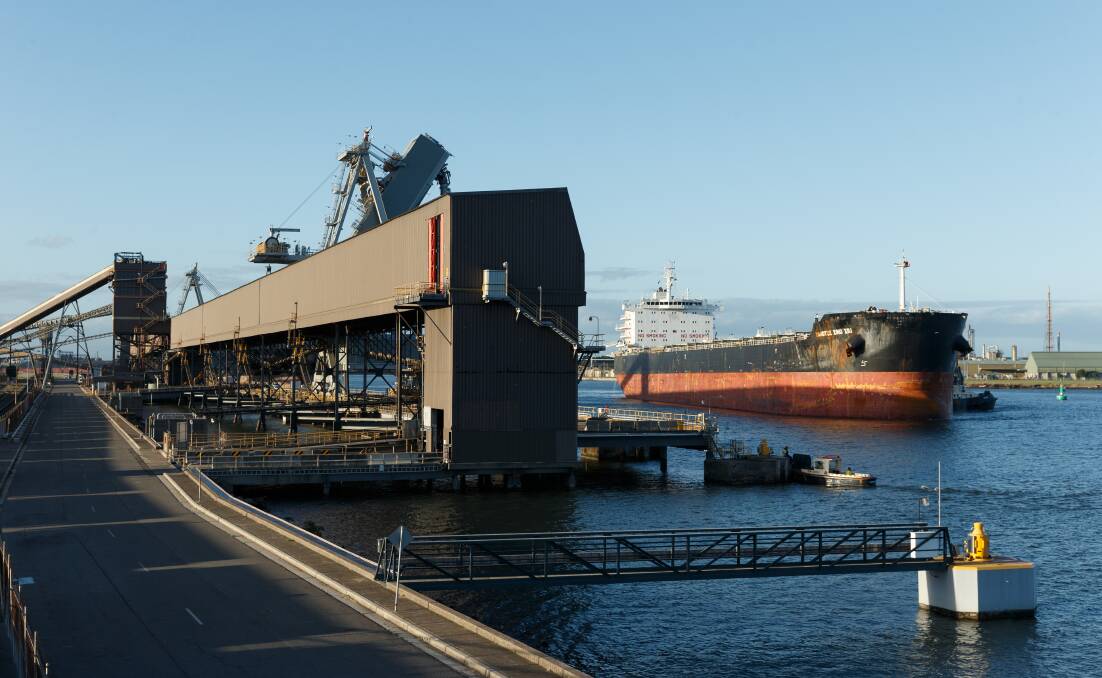
Arguments over the future of the Carrington coal terminal reflect a much bigger question facing the Hunter region – how prepared are we for major changes in the coal industry?
Subscribe now for unlimited access.
$0/
(min cost $0)
or signup to continue reading
The world is changing. Hunter communities have sacrificed a lot for NSW’s prosperity. We have a right to expect that our governments are planning to ensure we have jobs and opportunities into the future, regardless of what happens to the coal market.
Debates about whether the coal price will go up or down only increase anxiety in families and communities that rely on income from coal mining. If your financial wellbeing is dependent on coal mining, and the ongoing viability of the industry is anyone's guess, how can you build a life in our region? We need to be confident that there will be jobs and economic opportunities here, whatever happens to the coal price. That means we need to diversify our economy, and plan for life after coal.
Singleton and Muswellbrook residents know what it's like during a mining downturn. When coal prices fall, mines close, and thousands of local people lose their jobs. Even if you don’t think the coal industry will end, it makes sense to diversify the region's economy so it’s not so vulnerable to the fluctuations of the global coal market.
If the Hunter doesn’t properly prepare for the potential for a rapid decline in the coal industry, there will be serious social and economic shocks to the communities of Singleton and Muswellbrook.
To ease the pace and impact of the change that is coming, the Hunter needs structural adjustment support from the state government. The government and coal mining companies need to give back to the Hunter, which has given them so much. We need money, plans, programs and genuine dialogue. It’s not fair to leave the region at the mercy of the market.
That’s why Lock the Gate is knocking on doors in Singleton and Muswellbrook to ask people what they want for the future of the region. It’s why we’re hosting community dinners for people to envision a life for the Hunter beyond coal. When we talk to people in Singleton and Muswellbrook about the future, it’s clear that most people are thinking about life after coal. Nine out of 10 people we talk to say we need a plan for a post-coal economy in the Hunter.
Some of the industries that spring forward to support the Hunter will be old ones that have been protected and regrown.
Agricultural industries such as dairy farming, viticulture, and thoroughbred breeding have contracted in the region as the open-cut mines stormed over the landscape, but they can be nurtured anew.
Other industries will be new. We will need vocational education and industry start-up grants to encourage manufacturing, renewable energy, and other high-value industries. But this won’t happen without a plan.
The future prosperity and stability of the Hunter is in our hands. We have the capacity to protect communities, landscapes and natural resources from reckless mining projects and doing so will mean we have options for the future. It was a mistake for the Department of Planning not to talk to Port Waratah Coal Services about its proposal to close Carrington coal terminal, but talking to coal companies about the future beyond coal can be frustrating and fruitless.
To choose a positive and prosperous future for this region, we need to talk to the people and the industries that will be sticking around for the long-term.

